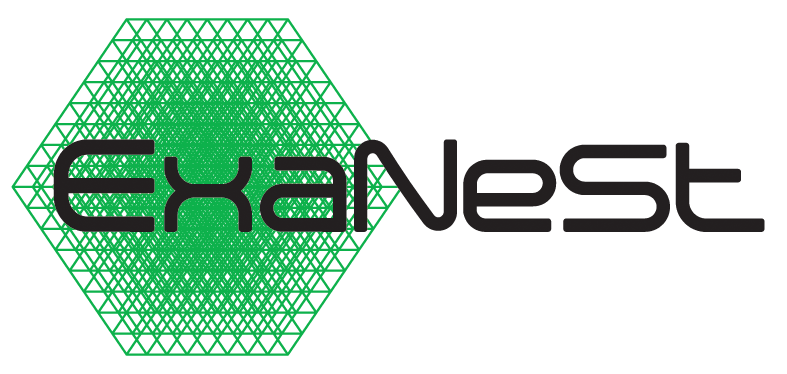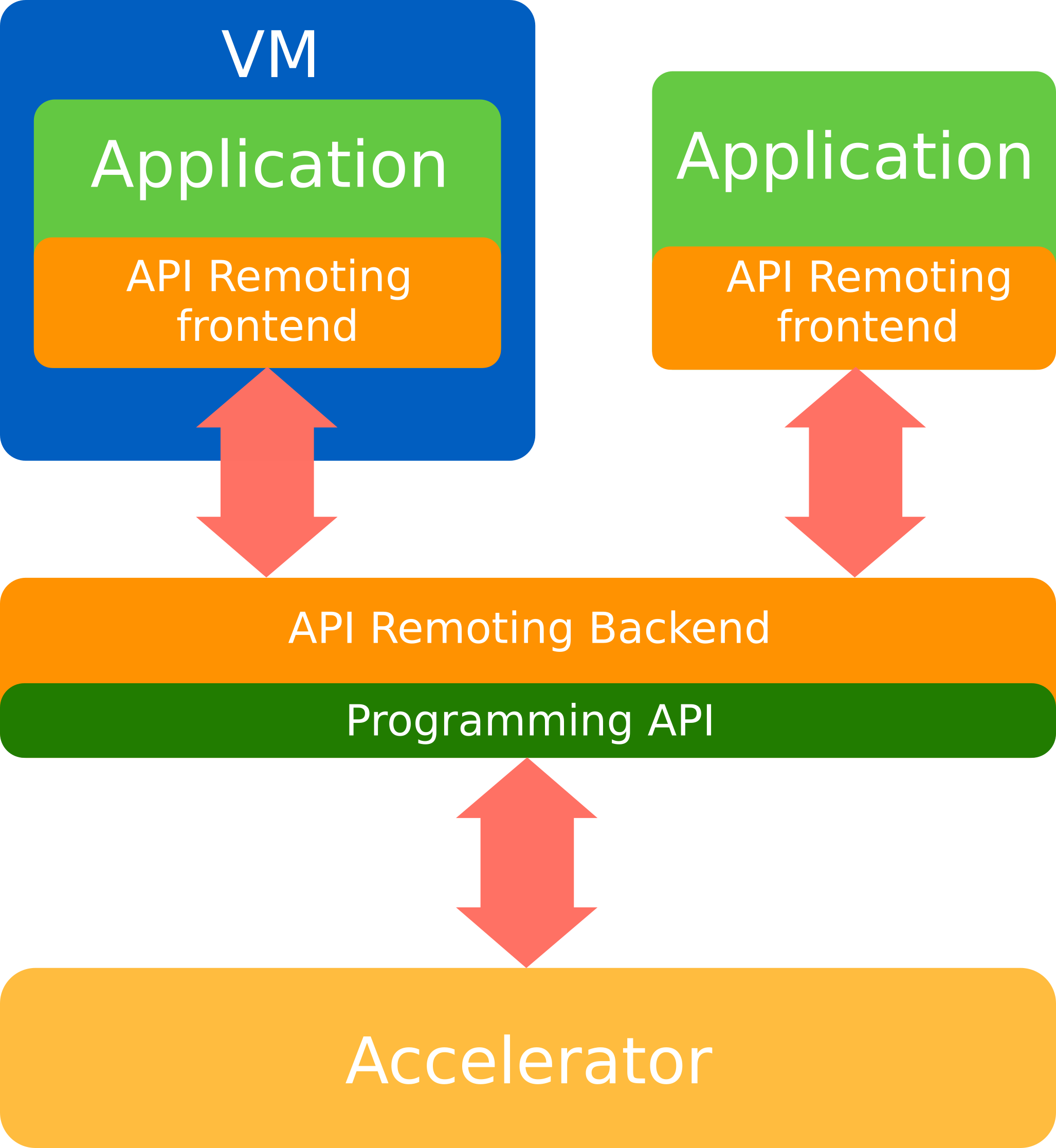-
Vmanager nancy outcome
: NANCY SNS EU - VOSySmonitor and vManager solution to enable a safe/efficient execution at edge
-
K8s svff satcom wave
: Kubernetes FPGA WAVE acceleration - SR-IOV Virtualization for IEEE WAVE in Space Ground/Terminals & Cloud
-
Wave fpga sriov
: OpenWAVE - SR-IOV Virtualization Function Framework for IEEE WAVE in Space Ground/Terminals & Cloud
-
Virtio loopback sound agl
: Virtio-loopback for a HAL to connect virtio-drivers apps to vhost-user devices - vhost-user-can, vhost-user-console
-
Risc v multiple os
: VOSySmonitoRV enables 3-OSs mixed critical virtualization on RISC-V Lichee Pi 4A - 2 RTOS - AGL Linux
-
Everest virtio fpga
: Runtime environment virtualization, virtualizing FPGA access with virtio-fpga on Arm and x86 in EVEREST H2020
-
Virtio loopback agl lf alpha release
: Virtio-loopback alpha release enables portable application-driver interactions on native and virtualized environments
-
Virtio loopback agl lf
: Virtio-loopback to enable portable application-driver interactions on native and virtualized environments
-
Vosysmonitor secure freertos optee linux
: VOSySmonitor, a mixed critical virtualization solution to execute Linux, FreeRTOS, OPTEE on nxp-s32g and many multicore hw
-
Vosysmonitorv core sharing virtualization demo
: VOSySmonitoRV, a virtualization core sharing mixed critical execution environment running Linux and FreeRTOS on RISC-V
-
Vosysmonitorx86 demo
: VOSySmonitorX86, a virtualization mixed critical execution environment running Linux and FreeRTOS on X86 arch
-
Vosysmonitorv risc v demo
: VOSySmonitoRV, a virtualization mixed critical execution environment running Linux and FreeRTOS on RISC-V, HiFive Unleashed
-
Vosysmonitor mt2712 jp 日本語
: Vosysmonitorが、 MT2712上で、 ハイパーバイザ・レスEcockpitの性能を高める – ブート、 Fiq/Irq 遅延ベンチマーク
-
Vosysmonitor mt2712
: VOSySmonitor on MT2712 boosts hypervisor-less eCockpit - boot time, FIQ/IRQ latency, andorid higher performances
-
Virtualizing fpga accelerators
: Virtualization of FPGA accelerators with dynamic mapping & context processing control, overcommitment, orchestration
-
Virtualizing stb lower tco
: Virtualization of Application Software Stacks to Lower TCO Costs at high performance for Multimedia Box, Industrial IoT, Automotive
-
Vosysmonitor emcos ew2019 jp 日本語
: ルネサス社のR-Car H3 Salvator-XS上にて、VOSySmonitorにより、Linux / eMCOS® POSIXの統合(コンソリデーション)
-
Vosysmonitor emcos ew2019
: Linux / eMCOS® POSIX consolidation with VOSySmonitor on the Renesas R-Car H3 Salvator-XS
-
Vosysiot edge iotwc2018
: VOSySIoT, IoT Mixed-critical Secure Edge at IoT Solutions World Congress 2018
-
Vfpgamanager sdnnfv2018
: FPGA Virtualization Framework enables accelerators direct access from VM, containers, unikernels
-
Vosysmcs rcar forum 2018
: VOSySmcs - Automotive mixed-criticality virtualization, Digital Cluster and In-Vehicle Infotainment on Renesas R-Car H3 Salavator-XS
-
Vosysiot sido demo
: VOSYSIoT software stack product enables mixed-criticality in IoT Edge - SiDO-2018 video demo
-
Memguard memtalk kvm armv8
: Memguard extensions, Memtalk, enhance performance & isolation in KVM Guests on ARMv8
-
Vosyswitch interop2017 shownet arm server
: VOSYSwitch Dataplane showcased on ARM Servers - part of ShowNet at INTEROP-2017 Tokyo
-
Vosysmonitor als2017
: VOSYSmonitor, a low latency Monitor layer for Mixed-Criticality automotive IVI, drones, industrial, co-execute GPOS and RTOS on Renesas R-Car H3
-
Vosysmonitor als2016
: VOSYSmonitor, a low latency Monitor layer for Mixed-Criticality automotive IVI, drones, industrial, co-execute GPOS and RTOS on Renesas R-Car H3
-
Vosyswitch interop
: User-space VOSYSwitch showcased at INTEROP TOKYO 2016, outperforms OVS-DPDK for x86 and ARMv8 NFV servers
-
Vosyswitch odp armv8
: VOSYSwith with OPNFV Linaro ODP showcased at LinaroConnect BKK16 on VNFs chaining ARMv8 servers
-
Kvm virtualization training video
: Introduction to virtualization and KVM training material
-
Vosyswitch perf openstack integration
: VOSYSwitch, an high-performance user space virtual switch showcased within an integrated OpenStack deployment in NFV infrastructure compute node
-
Vosyshmem api remoting
: API Remoting for OpenGL, OpenMax, OpenCL: GPU KVM virtualization on ARM platforms
-
Virtual bfq in action
: Virtual bfq storage I/O scheduler for optimizing latency and increasing responsiveness in kvm virtualized systems
-
Kvm on arndale exynos
: KVM virtualization port on Exynos-5250 Arndale ARM platform
-
Kvm armv7 multiple guests poc
: Proof of concept shows feasibility, near-native performance of KVM on ARMv7
-
Byod android kvm on cortex-a15
: Multi-Persona/BYOD Android KVM Virtualization demo on Cortex-A15 Versatile Express
-
Kvm full virtualization on vexpress
: Android ICS guest KVM on ARMv7 demo with Cortex-A15 Versatile Express
-
Kvm vs tcg virtualized guests
: Near-native performance KVM virtualized guest vs Qemu's TCG emulation
-
Kvm android guest on arm fastmodels
: Kvm android guest on arm fastmodels




 VOSySofficial
VOSySofficial




